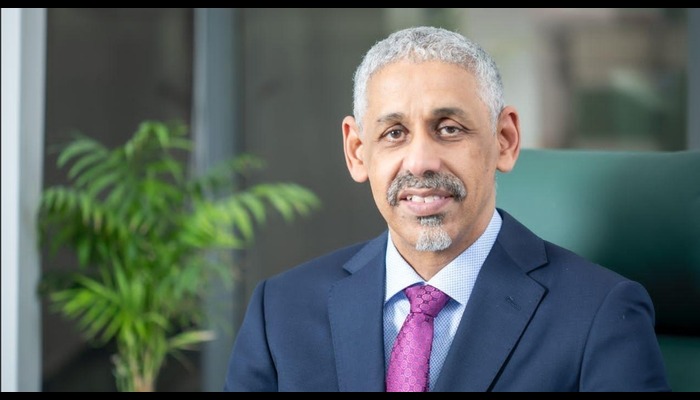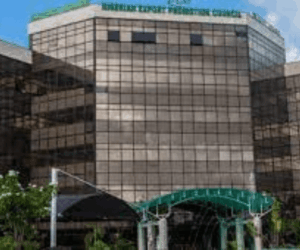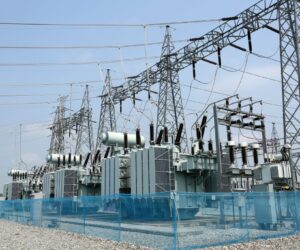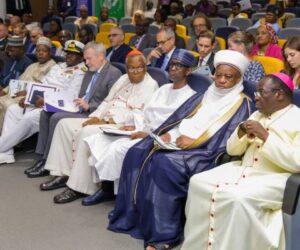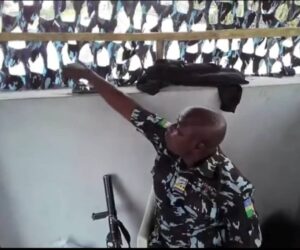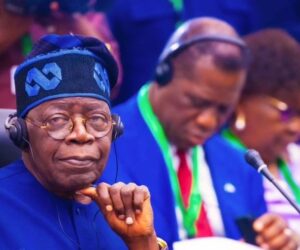Sidi Ould Tah was on Monday sworn in as the ninth President of the African Development Bank Group (AfDB), pledging institutional reform, deeper partnerships, and a focus on delivering measurable impact as he begins his five-year term at the helm of Africa’s premier development finance institution.
The ceremony, held at the Sofitel Abidjan Hôtel Ivoire, was attended by regional heads of state, including Côte d’Ivoire’s President Alassane Ouattara and Mauritania’s President Mohamed Ould Ghazouani, according to the Bank’s statement.
Tah succeeds Akinwumi Adesina, who completed two full terms marked by a significant expansion in the Bank’s capital base and global influence.
Ould Tah, 60, was elected in May with over 76% of shareholder votes—the highest margin ever recorded for a first-term AfDB president. His appointment comes at a time of heightened economic pressure across the continent, including public debt risks, climate vulnerability, and infrastructure deficits.
President Ouattara called the transition “a milestone which comes at a historic moment in the life of our pan-African institution,” and said it “paves the way for a new era of hope for the Bank.”
Read also: Cote d’ Ivoire to swear in Sidi Ould Tah as 9th AfDB president
In his inaugural address, Ould Tah outlined a four-point plan to guide his first 100 days in office, focusing on internal reforms, operational responsiveness, partnership development, and the acceleration of practical development outcomes.
“We will be the Bank that bridges divides—between regions, between ambitions and execution, between public and private, between urgency and bureaucracy,” Tah said. “Let us move forward together—with urgency, with unity, and with unwavering accountability.”
He pledged that the Bank would be “attentive, responsive, and capable of setting priorities that matter,” and committed to working more closely with African governments, the private sector, and international partners to develop a “financial framework that serves Africa on its own terms.”
The new president signaled his intent to expand the Bank’s network of partners, citing sovereign wealth funds, pension funds, and regional institutions as potential collaborators. He also proposed a new investment model that includes a “dedicated pillar for investment in peace.”
In a continent facing growing security threats, Ould Tah said peace must be treated as a development issue. “We urgently need to revisit our investment models,” he said, “to include peace as a pillar for sustainable growth.”
Acknowledging staff as the Bank’s most important asset, he announced plans to host a town hall meeting “in the coming days” to engage directly with employees.
Ould Tah also offered a broader vision for Africa’s development trajectory, saying the continent must chart its own course while learning from global trends. “Africa must look North, South, East and West—not to imitate, but to draw wisdom and strength from every direction,” he said. “Like a navigator guided by the compass, the Bank should help Africa navigate the megatrends toward increased self-reliance, ambition, and agency.”
He added: “The African Development Bank should not aim to be everything to everyone. It should focus on where it can move the needle most—always with the spirit of partnership.”
Read also: Akinwumi Adesina bows out as president of AfDB
Ould Tah most recently served as President of the Arab Bank for Economic Development in Africa (BADEA), where he led a comprehensive institutional transformation that saw assets rise from $4 billion to nearly $7 billion and earned the bank its first-ever AAA credit ratings.
Prior to that, he was Mauritania’s Minister of Economy and Finance and served on the boards of multiple multilateral development banks, including the AfDB.
An economist, Ould Tah assumes leadership of an institution with a capital base of $318 billion, AAA credit ratings maintained for ten consecutive years, and more than $100 billion in development financing approved over the past decade.
The ceremony was presided over by Ludovic Ngatse, Congo’s minister of economy and Chair of the AfDB Board of Governors.
Several former AfDB presidents, international development partners, private sector representatives, and three of the candidates who contested the presidency alongside Ould Tah were also in attendance.

